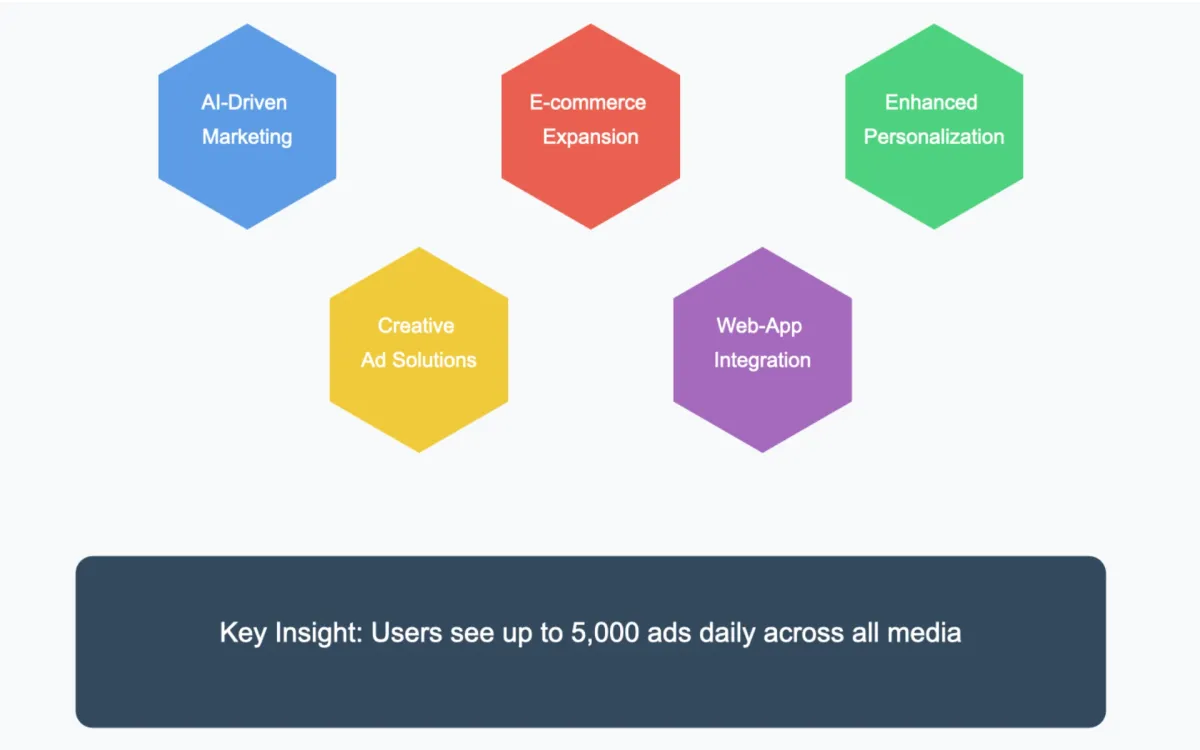
AppLovin, a mobile technology company, released its predictions for the mobile app industry on December 13, 2024, just two days ago, highlighting significant technological advancements expected to reshape the sector in 2025.
According to Rafael Vivas, VP of Sales at AppLovin, artificial intelligence will fundamentally alter brand-consumer relationships in the mobile space. The technology will enable direct-to-consumer brands to implement predictive marketing strategies, allowing for precise targeting and optimization of advertising expenditure.
The mobile advertising landscape is undergoing substantial transformation, particularly in the e-commerce sector. Paul Kennedy, VP of eCommerce at AppLovin, notes that retail brands are expected to shift beyond conventional advertising channels. "In 2025, we'll see e-commerce fully embrace advertising in mobile apps as a central performance channel," Kennedy states, emphasizing the potential for accessing high-intent shoppers at scale.
Daniel Tchernahovsky, VP of Global Business Development at AppLovin, identifies sophisticated user segmentation as a key development for 2025. The enhancement in both user acquisition technology and game development capabilities enables increasingly personalized gaming experiences. This advancement extends beyond traditional gaming applications, with health, wellness, and productivity apps incorporating gaming elements to enhance user engagement.
The issue of advertising saturation presents significant challenges for the industry. Katie Jansen, Chief Marketing Officer at AppLovin, points to statistics indicating that consumers encounter approximately 5,000 advertisements daily across various media platforms. This saturation necessitates innovative approaches to maintain user attention. Jansen elaborates on the complexities of content creation at scale: "Doing this at scale will be a massive challenge. Brands that win will be the ones that figure out how to create diverse, engaging content without burning out their teams."
The integration of web and mobile app experiences represents another significant trend. Tchernahovsky observes an increasing number of developers exploring web-based components within their applications. Initially limited to subscription services, this approach has expanded across various app categories, suggesting a broader industry shift toward hybrid experiences.
Consumer purchasing behavior continues to evolve, with Vivas predicting a complete transformation in shopping patterns by 2025. The rise of direct-to-consumer brands, coupled with advanced mobile purchase funnels, indicates a shift away from traditional retail models. These developments provide smaller brands with unprecedented opportunities to compete in the digital marketplace.
The mobile app industry's transformation reflects broader technological trends, particularly in artificial intelligence and user experience design. The integration of these technologies enables more sophisticated marketing approaches, enhanced personalization, and improved user engagement metrics.
The predictions highlight the increasing complexity of the mobile app ecosystem. Developers and marketers must navigate multiple channels, technologies, and user expectations while maintaining effective engagement strategies. The emphasis on artificial intelligence and automation tools suggests these technologies will play a crucial role in managing this complexity.
The focus on user segmentation and personalization indicates a shift toward more targeted, efficient marketing approaches. This development coincides with growing concerns about advertising effectiveness and user attention spans in an increasingly crowded digital environment.
The convergence of web and app experiences represents a significant technical development, potentially affecting how developers approach application architecture and user experience design. This trend might influence future development frameworks and marketing strategies.
These industry changes occur against a backdrop of evolving consumer behavior and technological capabilities. The predictions suggest a complex interplay between user expectations, technological advancement, and market dynamics that will characterize the mobile app industry in 2025.
Industry observers note the significance of these predictions for developers, marketers, and businesses operating in the mobile space. The emphasis on artificial intelligence, personalization, and cross-platform integration indicates the technical and strategic priorities that will likely dominate industry discussion throughout 2025.

